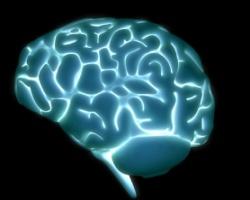Is advancing technology causing our brains to evolve? A new study led by UCLA neuroscientist Gary Small indicates a dramatic shift is being made in how we gather and assimilate information and communicate what we know and learn.
In his book, iBRAIN: Surviving the Technological Alteration of the Modern Mind, Small says our brains drift away from fundamental social skills as they refocus on new technological skills. (Story continues below.)
Discussion Starters
1.) Arguably, modern youth are growing up in a world vastly different from that of previous generations. What role do you see technology playing in the lives of your students? Are the effects positive or negative? After reading this article, what steps could you take to help reverse any negative effects you are witnessing in the youth culture while encouraging them to take advantage of opportunities available to them?
2.) After learning that repeating certain tasks strengthens one’s ability in that area, how are you better able to encourage students who may feel they have few skills or aren’t as talented as their peers?
3.) What do passages such as
The brain’s ability to change in response to various stimuli (known as plasticity) is well known. The brain maps of hobbyists and people in differing professions show their brains are associated with their specific activities. For instance, athletes’ possess more gray matter that controls hand-eye coordination, whereas musicians’ brains are wired to control finger movements. This data substantiates the fact that the more time we spend doing a particular thing, the more adept we become at performing that activity.
Therefore, Small argues that prevalent use of the Internet enhances the brain’s capacity to be stimulated — in other words, rewiring brain function to increase decision-making capabilities and enhance complex reasoning. The study found Internet reading activates a broader portion of the brain than does printed matter. So, those who are more tech-savvy can store and retrieve more information in the short term, are better perceptual learners, and have finer motor skills.
Although these are not indicators of evolution, the data suggests the impact will be more evident in younger generations that are exposed to more technology earlier in life. This phenomenon is known as brain gap, a term describing the difference in digital natives (those born into a world with email, text messaging and Internet capability) and digital immigrants (people who’ve lived through the inventions of modern technology). Natives use their cognitive abilities to make quick decisions and multi-task; immigrants are better able to read facial expressions and body language and are more methodical and precise.
However, these skills don’t necessarily have to be mutually exclusive. A 2005 Kaiser study found that young people who balanced time spent on the Internet with face-to-face interaction among family and friends benefitted from their technical skills while preserving their social skills.




